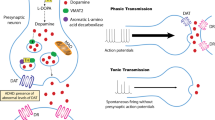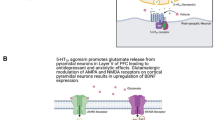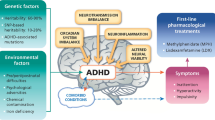Abstract.
Pharmacological studies with drugs that activate or inhibit several protein kinase C (PKC) isozymes have identified the PKC family of serine-threonine kinases as important in the regulation of γ-aminobutyric acid type A (GABAA) receptor function. PKC modulates GABAA receptor surface density, chloride conductance and receptor sensitivity to positive allosteric modulators such as neurosteroids, ethanol, benzodiazepines and barbiturates. Recent studies using PKC isozyme-selective reagents and gene-targeted mice have begun to identify critical roles for three isozymes, PKCβII, PKCɛ and PKCγ, in various aspects of GABAA receptor regulation. Progress in this field touches upon therapeutic areas that are of great clinical importance such as anxiety and addiction. Increased understanding of how PKC regulates GABAA receptors and which PKC isozymes are involved holds promise for development of new treatments for diverse neuropsychiatric disorders.
Similar content being viewed by others
Author information
Authors and Affiliations
Corresponding author
Additional information
Received 2 August 2004; received after revision 17 August 2004; accepted 21 August 2004
Rights and permissions
About this article
Cite this article
Song, M., Messing, R.O. Protein kinase C regulation of GABAA receptors. CMLS, Cell. Mol. Life Sci. 62, 119–127 (2005). https://doi.org/10.1007/s00018-004-4339-x
Issue Date:
DOI: https://doi.org/10.1007/s00018-004-4339-x




